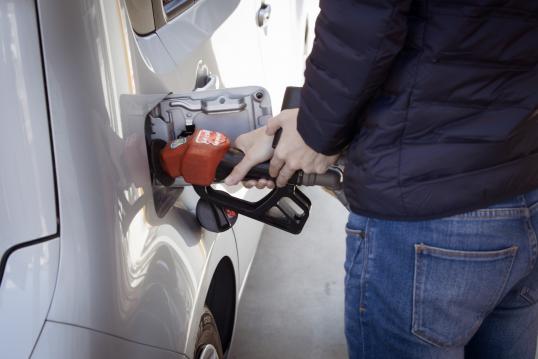Lithuania introduced the excise duty exemption for natural gas used as motor fuel in 2018. The main objective was to increase the use of natural gas due to its lower environmental impact and thus reduce the consumption of diesel and petrol in the transport sector. Public transport providers are the main users of natural gas as fuel, while the uptake for passenger and business vehicles has not been extensive due to the limited infrastructure (compressed natural gas — CNG — stations). Similar subsidies exist in the several EU Member States, such as Belgium, Croatia, Greece and Luxembourg.
The exemption from excise duty for natural gas used as motor fuel incentivises the use of natural gas by lowering its end-use price. CNG has lower environmental impacts than other fossil fuels but may compete with environmentally superior alternatives, such as electric cars (provided these are charged from renewable sources).
There are no official estimates of the budget impact of this subsidy, but on the basis of consumption data and the excise duty amount, an average of €2.4 million in duties per annum could have been collected in the years 2018-2020. If the excise duty exemption were abolished, the cost of CNG would increase approximately by 15%, causing a decrease in consumption estimated to be around 2.4%.
Lithuania identified the exemption as one of thirteen energy subsidies in the climate action plan for 2021-2030. The exemption for natural gas used as motor fuel is in line with EU Energy Taxation Directive (2003/96/EC) and phasing out of this subsidy has not been foreseen in the action plan. However, Lithuania is seeking to increase the use of renewable energy sources in the transport sector: the Law of Alternative Fuels requires that gas from renewable energy sources accounts for 4.2% of the total energy value of natural gas in 2025, increasing to 16.8% in 2030. The phasing out of the subsidy should be carefully designed to ensure the public is not affected by increased public transport fees. A compensation strategy to relieve an increase in costs of fuel could be offered to public transport companies in the form of funds to support investment in energy-efficient and clean buses or subsidies for the public transport sector to alleviate the increased gas costs. The first option would be more effective in limiting the environmental impact. The second option would be more effective in protecting public transport users from higher fees.
More information on the excise duty exemption for natural gas used as motor fuel and other candidates for reform in Lithuania and other Member States can be found in the country case studies and factsheets compilation.

